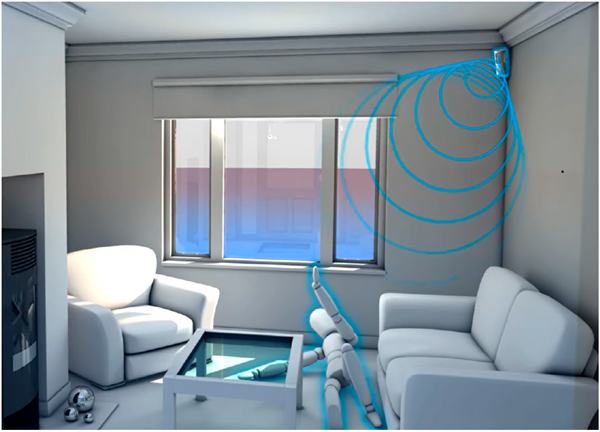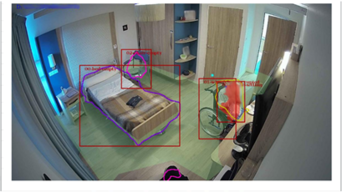Hikvision ties up deal with Creative Specific Software

Hikvision, an IoT solution provider with video as its core competency, is pleased to have reached agreement with Creative Specific Software (C2S) to work together in the growing healthcare sector with their VA2CS health monitoring technology.
Already deployed at thousands of sites across Europe, VA2CS is an integrated monitoring solution for retirement homes that alerts staff when a patient has fallen down. The system also monitors a room for intruders as well as checks health & safety criteria such as whether the person has slept well, if they are active, if they have wandered away, have eaten/drank.
This AI technology complements Hikvision cameras, which are used as sensors to pick up the real time video data that the VA2CS algorithm analyzes. The solution can be deployed using any standard Hikvision video or thermal camera using the ISAPI protocol.

The combination of Hikvision cameras and VA2CS AI will provide end users with healthcare solutions that monitor patient health and status more accurately and alert staff in case of difficulty. It also provides better security to patients, as it can replace the wearable systems like bracelets or RFID badge systems currently in use by many healthcare providers. These wearable systems have the downside that patients need to constantly wear them and have them charged to be effective. VA2CS is already of particular interest to providers that care for elderly patients, like residential care homes.
“We are thrilled to be working in partnership with C2S to be able to deliver this affordable and innovative solution to help healthcare providers to improve the quality of the care they provide”, says Liam Heatley, Technology Partner Alliance Manager at Hikvision Europe. “This could really make a big difference to patients, especially the elderly who often suffer from falls, and so that their families can check on them remotely.”

 Login
Login Login
Login CCCEU and Gunnercooke Successfully Host Webinar on CSDDD and FLR Compliance to Guide Chinese Businesses
CCCEU and Gunnercooke Successfully Host Webinar on CSDDD and FLR Compliance to Guide Chinese Businesses Cultivating responsible China-EU business leaders essential to tackling global challenges
Cultivating responsible China-EU business leaders essential to tackling global challenges



